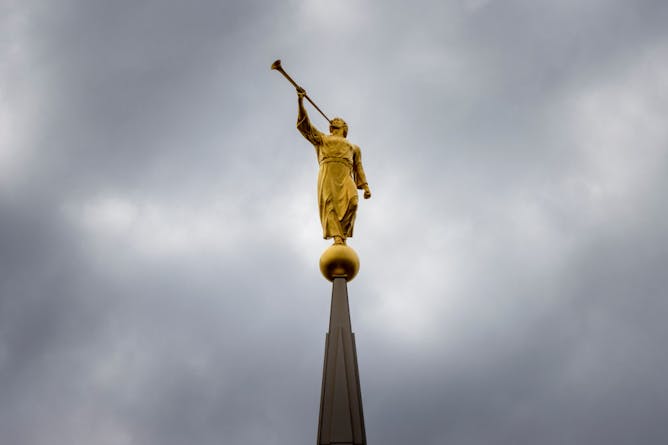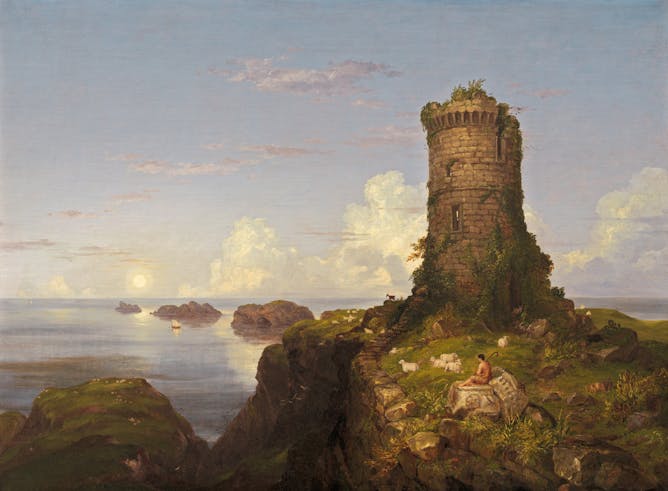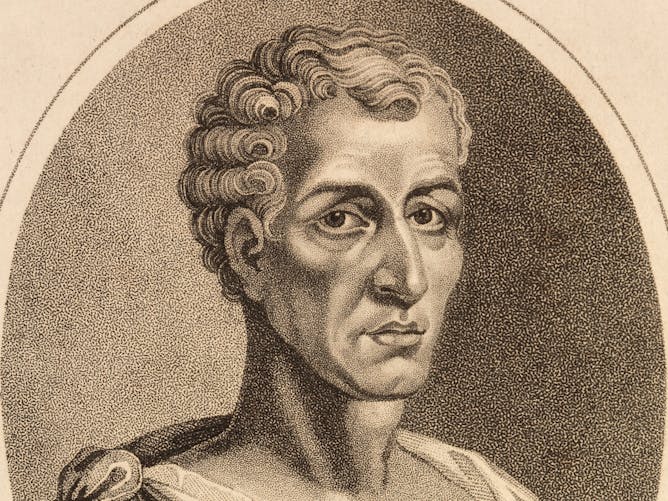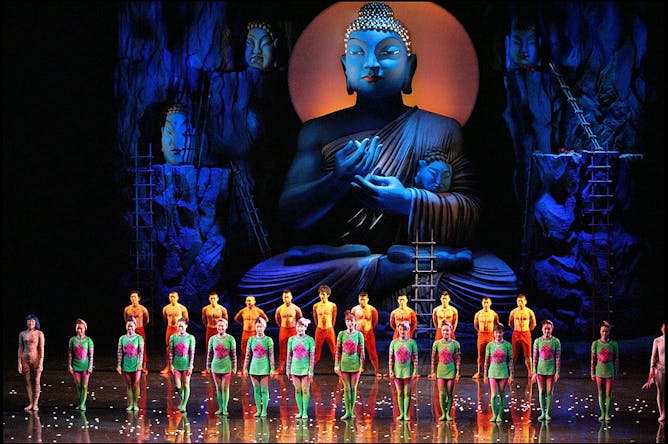|
|
|
|
As a child, I was fascinated by stories from the ancient Indian epics, the Ramayana and the Mahabharata, in which the heroes always defeated evil. Over the years, these complex texts became my companions through many of life’s ethical conundrums.
Almost every culture, tradition or religion will have epic texts that help provide moral clarity in times of utter confusion. So this year, I started a new series called ancient texts as a way to bring to our readers lessons from different traditions and parts of the world.
Scholars distilled wisdom from older books with thoughtful articles on friendships, diversity, hope, endurance and, above all, our common humanity. My own favorite, edited by my colleague Molly Jackson, was the one on humanity’s quest for a better self, taken from the classic Chinese novel, ‘Journey to the West.’
Readers’ comments and engagement showed that many found this series meaningful. Also, stories of hope – such as one on the resilience of the historic city of Antakya following the devastating earthquake in southern Turkey – resonated with readers. On another note, readers appreciated an article on the history of Hamas and its unpopularity among Gazans.
I know this year has been full of turmoil – but we can continue to try to show the light, even as we tell the stories of the darkness. Looking at the brokenness of the world, it’s been important to me to recall songwriter Leonard Cohen’s words: “There is a crack, a crack in everything, that’s how the light gets in.” May you find the light. Wishing you a year of joy – and hope.
|

|
Kalpana Jain
Senior Religion + Ethics Editor/ Director of the Global Religion Journalism Initiative
|
|
Reader favorites
|

Who speaks for the Palestinians of Gaza?
Mohammed Abed/AFP via Getty Images
Nathan French, Miami University
Politicians have used their assumptions about Gazans to support their policies. But the people in Gaza experience these policies far differently, writes a scholar of Islamism.
|

A golden sculpture of the angel Moroni atop the temple of the Church of Jesus Christ of Latter-day Saints in Rexburg, Idaho.
Natalie Behring/Getty Images
David Campbell, University of Notre Dame
The faith’s association with conservative politics has stayed strong for decades, but could become a liability, a political scientist argues.
|

A view of the destruction in Antakya, Turkey, caused by the recent earthquake.
AP Photo/Hussein Malla
Christine Shepardson, University of Tennessee
A historian of the late Roman world, who visited earthquake-devastated Antakya several times, writes about the city’s rich history and recovery after being devastated in the past.
|
Editors' picks
|

“Italian Coast Scene with Ruined Tower,” by 19th century American painter Thomas Cole.
National Gallery of Art
Chance Bonar, Tufts University
The ‘Shepherd of Hermas’ has been accused of being pedantic, even boring. In the first few centuries of Christianity, though, it was a hit.
|

Lucian of Samosata, a high-ranking Roman official.
Michael Nicholson/Corbis via Getty Images
Eleni Bozia, University of Florida
Lucian’s work provides insight into the second-century Roman world, which fostered multilingualism and multiculturalism.
|

‘Monkey: Journey To The West,’ a nine-act opera adaptation performed at the Chatelet Theater in France.
Bertrand Rindoff Petroff/French Select via Getty Image
Ji Hao, College of the Holy Cross
There is a long tradition in China of associating monkeys with the mind – symbolism that has helped the novel’s most memorable character, the Monkey King, find universal resonance.
|
News Quiz 🧠
|
-
Fritz Holznagel, The Conversation
Here’s the first question of this week’s edition:
In an April speech at Liberty University, Gov. Ron DeSantis declared, “We have made Florida the state where [blank] goes to die." What filled in the blank?
- A. Mickey Mouse
- B. Logic
- C. Woke
- D. Everyone from Connecticut
Test your knowledge
|
|
|
|---|
-
More of The ConversationLike this newsletter? You might be interested in our weekly and biweekly emails: Trying out new social media? Follow us: -
About The ConversationWe're a nonprofit news organization dedicated to helping academic experts share ideas with the public. We can give away our articles thanks to the help of foundations, universities and readers like you. |
|
| |
| |
| |

|
| |
| |
| |
| |
| |
| |
|
|
|
|
|
|
|